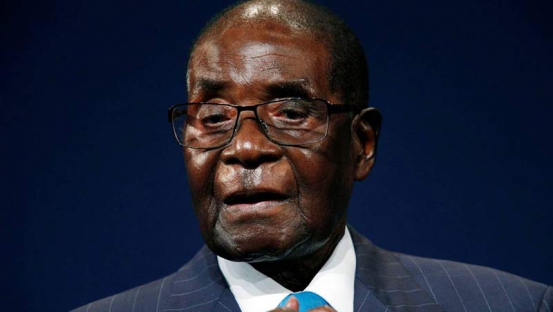×
The Standard e-Paper
Kenya’s Boldest Voice

Zimbabwe’s army appears to be pushing for a quick and bloodless end to 93-year-old President Robert Mugabe’s 37 years in power, to be replaced by a national unity government headed by his former deputy Emmerson Mnangagwa.
According to political sources in Harare, Mugabe - now under house arrest in his lavish Harare home - was resisting pressure to stand down voluntarily.